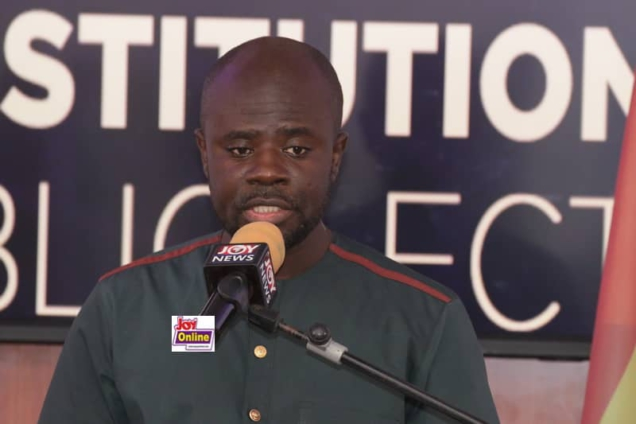Prof. Ernest Kofi Abotsi, Dean of the Faculty of Law at the University of Professional Studies, Accra (UPSA), has called the ongoing parliamentary dispute over the declaration of four seats as vacant an unprecedented moment in Ghana’s political history.
The situation has sparked a significant standoff in Parliament, following a Supreme Court ruling that stayed Speaker Alban Bagbin’s decision to declare the four seats vacant.
The Supreme Court’s intervention has created a new and complex dynamic within Ghana’s legislative process. Prof. Abotsi noted that this instance marks the first time the judiciary has halted such a ruling from the Speaker, setting an important legal precedent.
The ruling has shifted the balance of power in Parliament, leading to rising tensions between the Majority and Minority caucuses.
Despite the Supreme Court’s stay of execution, the Minority in Parliament has vowed to occupy the Majority side of the Chamber when Parliament reconvenes on Tuesday, October 22.
The Minority caucus, led by Dr. Cassiel Ato Forson, insists that they are the legitimate Majority based on the Speaker’s initial declaration, which is currently under judicial review.
Meanwhile, Majority Leader Alexander Afenyo-Markin has made it clear that the NPP MPs will not engage in any physical confrontation over the seating arrangement.
Instead, he announced that the Majority would walk out peacefully if the Minority attempts to take their seats, opting for a non-violent approach to the standoff.
In an interview with Channel One TV on Monday, October 21, Prof. Abotsi stressed the far-reaching implications of this unprecedented situation, especially as Ghana approaches the crucial 2024 elections.
He pointed out that the incident reflects the deep political divisions within the country and the significance of parliamentary procedures in shaping democratic outcomes.
Prof. Abotsi concluded by emphasizing the pivotal role the Supreme Court will play in resolving this constitutional dilemma.
He underscored the need for a legal resolution to restore order in Parliament and set a clear precedent for the handling of such disputes in the future.
“It’s unprecedented to the extent that we haven’t had four Members of Parliament whose seats have been declared vacant, not to my recollection.
“And they are unprecedented because I don’t remember in living memory that we have had a stay of execution of the Speaker’s decisions, in respect of such declaration and therefore, as you rightly indicated a potential reaction from Parliament.”
“Which may then potentially create a standoff assuming Parliament decides to go the opposite direction of stay. And the potential consequences, but it is also unprecedented because of the sheer public interest.
“I don’t remember the number of times we have had such an interaction between the public, parliament and the political actors. In terms of the ramifications and the fallouts and the interventions of the court, a lot of things happening now are unprecedented.”
“It’s unprecedented because of the timing, we have a serious election pending in December, and we have the opposition party as it were-wrestling from the Majority party its position. And you have the court coming in with the potential ramifications,” he said.


